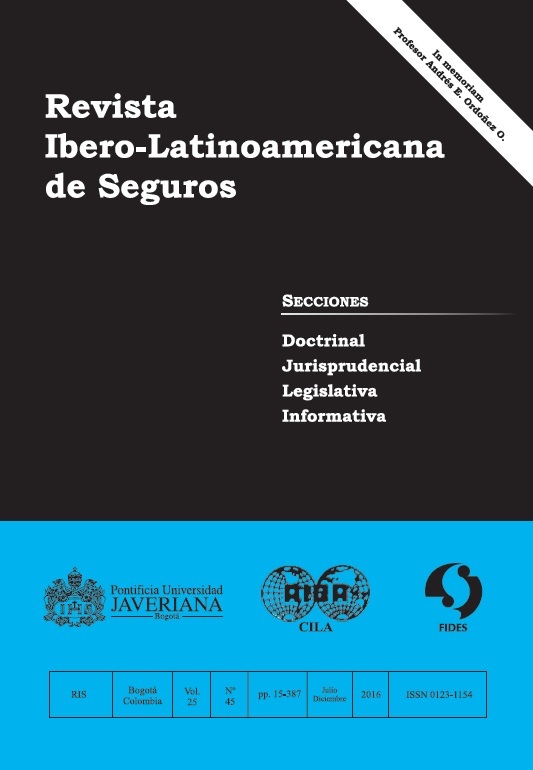Abstract
In the context of Contracts Law, one of the most resounding topics, but also one of the most current ones, as to contractual construction, not only with respect to non-standardized contracts but also standard-form contracts and consumption contracts, among other expressions of current business transactions, examining the modern rules of interpretation of contracts in the light of comparative law and Colombian law is useful, in particular, the rather well accepted rule of “prevalence of specific conditions over general conditions,” which is a sort of nucleus of contracting practices today, both from a general perspective and an individual perspective, especially as to what is related to the insurance agreement (insurance policy) where such rule is of the utmost importance, to the extent that a great deal of its structure and subsequent development, in fact, has materialized as to the active and rich insurance legal relationship.
This journal is registered under a Creative Commons Attribution 4.0 International Public License. Thus, this work may be reproduced, distributed, and publicly shared in digital format, as long as the names of the authors and Pontificia Universidad Javeriana are acknowledged. Others are allowed to quote, adapt, transform, auto-archive, republish, and create based on this material, for any purpose (even commercial ones), provided the authorship is duly acknowledged, a link to the original work is provided, and it is specified if changes have been made. Pontificia Universidad Javeriana does not hold the rights of published works and the authors are solely responsible for the contents of their works; they keep the moral, intellectual, privacy, and publicity rights.
Approving the intervention of the work (review, copy-editing, translation, layout) and the following outreach, are granted through an use license and not through an assignment of rights. This means the journal and Pontificia Universidad Javeriana cannot be held responsible for any ethical malpractice by the authors. As a consequence of the protection granted by the use license, the journal is not required to publish recantations or modify information already published, unless the errata stems from the editorial management process. Publishing contents in this journal does not generate royalties for contributors.


